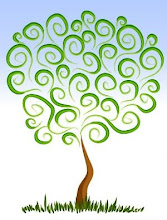The thing that stood out to me the most in today's class disscussion was the idea that existentialist writers' goal is for you to experience the character's angst. I felt when reading Crime and Punishment like I, in fact, was the guilty party when I was merely the reader. While I just thought I was slightly delusional, it never occured to me that Dostoevsky's plan was to have me comiserate with Raskolnikov. But now that this fact has been brought to my attention, I am in even more awe if Dostoevsky's talent in the written word.
I was also very curious about what the speaker said about C & P being a version of the raising of Lazarus. Though it would be quite a feat, it makes me want to read the book again just so I can see if that is true. Granted, I'm 99.99% sure I won't do that now, but maybe sometime in the future.
Tuesday, September 23, 2008
Thursday, September 18, 2008
Raskolinkov's Redemption
In Crime and Punishment, Dotoevsky mentions in the last sentence that Raskolinkov is on the road to being redeemed, but never once does Raskolinkov repent. Even while in Siberia, after confessing his crime, Raskolinkov admits to pondering over his theory trying to find a fault yet not seeing where he was wrong. Then he has his illness where he dreams about an odd disease that sweeps over Europe. This disease infects men and causes them to believe that they, and only they, are in possession of the truth. The men in turn fight each other for power, killing those who get in their way as well as the comrades who are helping them. When Raskolinkov is relieved from his sickness he does not appear to draw any special meaning from his dream, but when his companion, Sonia, does not come to visit him in the following days, there is a marked change in his actions. Upon seeing Sonia again, he is overcome with emotion which he has not felt since the perpetration of his crime and he finally confesses his love for her. It is at this point where Dotoevsky asserts that in a following tale, perhaps, Raskolinkov will be redeemed.
Sonia, throughout the novel, acts as Raskolinkov's redemptive figure. In my opinion, Raskolinkov's change of heart towards Sonia signifies his inward state as an acceptence of his crime and the turning point of his repentence. The relationship between Raskolinkov and Sonia also expresses the need for love in partnership with regeneration.
In conclusion, although Dotoevsky does not bluntly state that Raskolinkov has repented, his changed affections toward Sonia and his sudden discovery of emotion show that he has, in fact repented of his crime.
Sonia, throughout the novel, acts as Raskolinkov's redemptive figure. In my opinion, Raskolinkov's change of heart towards Sonia signifies his inward state as an acceptence of his crime and the turning point of his repentence. The relationship between Raskolinkov and Sonia also expresses the need for love in partnership with regeneration.
In conclusion, although Dotoevsky does not bluntly state that Raskolinkov has repented, his changed affections toward Sonia and his sudden discovery of emotion show that he has, in fact repented of his crime.
Tuesday, September 2, 2008
Inspirational "Mere Christianity" Passage
"On the one hand, God's demand for perfection need not discourage you in the least in your present attempts to be good, or even in your present failures. Each time you fall He will pick you up again. And he knows perfectly well that your own efforts are never going to bring you anywhere near perfection. On the other hand, you must realise from the outset that the goal towards which He is beginning to guide you is absolute perfection; and no power in the whole universe, except you yourself, can prevent Him from taking you to that goal." page 203
Subscribe to:
Comments (Atom)
